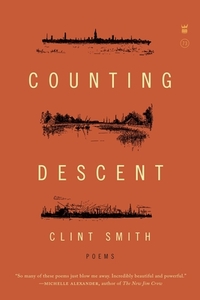Take a photo of a barcode or cover
challenging
reflective
slow-paced
reflective
relaxing
fast-paced
This is a very short book of poetry, but the poetry sings.
This book deserves a second read so that I can REALLY take in everything.
I know it's only March, but this is in the running for best poetry collection of 2018.
3.5 stars
This collection is a bit uneven (I almost stopped reading a few pages in because I could not handle another basketball poem), but when it hits, it hits. Smith writes about politics and race, but he connects those subjects to themes of family, geography, and history to make the poems feel like more than just "protest poems" (he has a great duo of poems about being in conversation with James Baldwin which talks about the concept of the protest poem, great stuff). I appreciate that he makes a conscious decision to intersperse the more overtly political poems with more everyday subject matter, but most of the time the latter poems just weren't nearly as effective (see again: the basketball poems, but also the love poems which did not really work for me).
I'll share the shortest poem from the collection, a haiku, which I quite liked (and works really well in the context of its placement):
Canon
Our stars weren't meant for
their sky. We have never known
the same horizon.
Another favorite poem was "For the Boys Who Never Learned How to Swim," which had a very effective use of metaphor.
So, I wish the collection had been more cohesive, but I appreciated most of it. This would be a great collection to share with a high schooler in your life because Smith's poems are very accessible and current.
This collection is a bit uneven (I almost stopped reading a few pages in because I could not handle another basketball poem), but when it hits, it hits. Smith writes about politics and race, but he connects those subjects to themes of family, geography, and history to make the poems feel like more than just "protest poems" (he has a great duo of poems about being in conversation with James Baldwin which talks about the concept of the protest poem, great stuff). I appreciate that he makes a conscious decision to intersperse the more overtly political poems with more everyday subject matter, but most of the time the latter poems just weren't nearly as effective (see again: the basketball poems, but also the love poems which did not really work for me).
I'll share the shortest poem from the collection, a haiku, which I quite liked (and works really well in the context of its placement):
Canon
Our stars weren't meant for
their sky. We have never known
the same horizon.
Another favorite poem was "For the Boys Who Never Learned How to Swim," which had a very effective use of metaphor.
So, I wish the collection had been more cohesive, but I appreciated most of it. This would be a great collection to share with a high schooler in your life because Smith's poems are very accessible and current.
Forever recommendation. Clint Smith has such a way with words, always a gut punch.
I love this book. Clint Smith is a storyteller and emotions provocateur. I want this book taught in schools everywhere. I want this book to be a staple for everyone. It digs into your soul and connects you to the world, and if you’re blind to it, it makes you see it more distinctly. I also appreciate the publishing house, “Write Bloody” and am excited to check out the titles listed in the back of the book as well if they’re as great and under appreciated as this one.
If you’re not already following @allisonreadsdc then you are missing out on some fabulous recommendations that will challenge you to think critically and embrace diversity.
Counting Descent by Clint Smith is a modern poetry collection that spans the author’s childhood and experience growing up in New Orleans, to his time as an adult at Harvard University. It also includes social and historical commentary, and I was particularly moved by For Charles, a poem dedicated to Charles Deslondes who in 1811 led the largest slave revolt in American history.
This was highly readable, engaging and incredibly powerful. Some of my favorites in the collection included Counterfactual (in which he recounts playing with waterguns in the street as a child with white friends, and his father’s subsequent ‘reprimand’ of this), Ode to The Only Black Kid in Class (which describes the weight of having to be a voice for a group when you’re the only member present) and Dissection (recounting his grandfather hearing the news of JFK’s assassination).
This was incredible, unputdownable, and I can’t wait to read more by Clint Smith! Thanks for the fantastic recommendation, Allison! 😊
Counting Descent by Clint Smith is a modern poetry collection that spans the author’s childhood and experience growing up in New Orleans, to his time as an adult at Harvard University. It also includes social and historical commentary, and I was particularly moved by For Charles, a poem dedicated to Charles Deslondes who in 1811 led the largest slave revolt in American history.
This was highly readable, engaging and incredibly powerful. Some of my favorites in the collection included Counterfactual (in which he recounts playing with waterguns in the street as a child with white friends, and his father’s subsequent ‘reprimand’ of this), Ode to The Only Black Kid in Class (which describes the weight of having to be a voice for a group when you’re the only member present) and Dissection (recounting his grandfather hearing the news of JFK’s assassination).
This was incredible, unputdownable, and I can’t wait to read more by Clint Smith! Thanks for the fantastic recommendation, Allison! 😊









